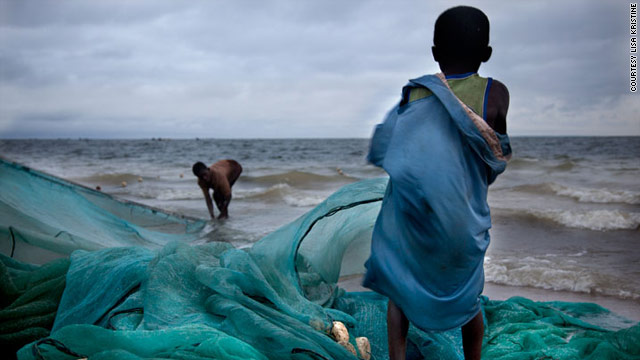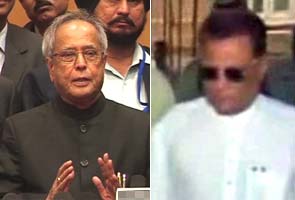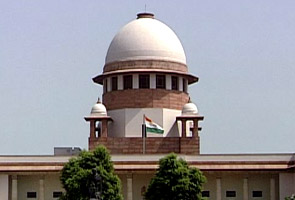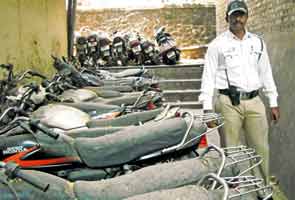GRINNELL, Iowa - Dozens of American colleges and universities are seeing a surge in applications from students in China, where a booming economy means that more families can pursue the dream of an American higher education.
But that success - following a 30 percent increase last year in the number of Chinese studying in the United States - has created a problem for admissions officers.
At rural Grinnell College, nearly one of every 10 applicants is from China. They all send glossy brochures crammed with photos depicting high-achieving lives. ("Hi Professors!" announced one from a young woman who described herself as "sincere, kind and tough.")
How do they choose perhaps 15 students from the more than 200 applicants from China?
Half of Grinnell's applicants from China this year have perfect scores on the math portion of American college entrance exams, making the performance of one hard to distinguish from another.
But the most accomplished applicants will have lower grades, because Chinese schools tend to grade on a far less generous curve than American high schools.
Few will have taken honors or Advanced Placement courses.
Then there is the challenge of assessing an applicant's command of English, since some Chinese families hire "agents" to write the application essay. These same advisers counsel families to spend money on the fancy brochures.
"They should save their money," Seth Allen, the dean of admission and financial aid at Grinnell, said.
Mr. Allen said that few would actually be read by the overworked admissions officers as they plowed through nearly 3,000 applications over all. The brochures, said Jonathan C. Edwards, Grinnell's coordinator of international admission, were destined for the recycling bin.
Grinnell officials said they spend most of their time on Chinese applications trying to parse the essays for an authentic voice and sensibility.
A young woman from Shanghai, for example, impressed Mr. Edwards with an essay that described her volunteering at a rehabilitation center, where an autistic boy captured her heart.
"Such a hopeless boy evoked my strong feeling to help him and love him," she wrote. She was admitted last fall.
Another Chinese applicant made a less favorable impression by writing about her own hardship while helping others after the earthquake in 2008 in Sichuan Province.
"Every day, I showered and brushed my teeth using cold water," she wrote. "It was unbearable."
The admissions officers sometimes reach out to teachers and counselors at the applicants' high schools - especially those that have emerged as "feeders" to American colleges.
During each of the last two summers, Mr. Allen traveled through China on a recruiting tour with representatives from other colleges. For the colleges, such tours are motivated at least partly by money: an applicant from China or another country could have an edge if he or she can pay full tuition.
Grinnell also has a dozen full scholarships set aside for international applicants who need help paying tuition.
"I realize what regional differences there are in China," Mr. Allen said.
"Lumping students into this amorphous Chinese applicant pool really isn't doing them justice."
At Grinnell, the graduation rate of the Chinese students has been comparable to the 1,600-member student body over all - about 84 percent of those who enroll graduate in four years.
Most Chinese students at Grinnell do "very well" in economics, math or science, the subjects in which they are most likely to major, Mr. Allen said.
Help with writing English papers is also available in a writers' workshop.
"Chinese students are required to devote significantly more time to their studies than American students, and this generally carries through when they come to college in the U.S.," he said.
Applicants from China have also been learning about Grinnell and other American colleges and universities through a popular Chinese Web site, cuus.cn - which stands for Chinese Undergraduates in the United States, but the letters are also meant to be shorthand for "See You in the U.S."
The applicants often demonstrate unusual diligence.
"A girl from China called the other day after lunch, which was 2 or 3 in the morning for her," Mr. Edwards said. "She said she was calling to make sure everything in her application was complete," he said. "I had to tell her to go to bed."





 England batsman Kevin Pietersen said on Monday he was saddened and devastated at having to pull out of the World Cup because he needs a hernia operation.
England batsman Kevin Pietersen said on Monday he was saddened and devastated at having to pull out of the World Cup because he needs a hernia operation. Further trouble for the sacked IPL Commissioner Lalit Modi as the government may seek his deportation to make him join the probe into the alleged violation of foreign exchange laws in the conduct of T20 cricket tournaments.
Further trouble for the sacked IPL Commissioner Lalit Modi as the government may seek his deportation to make him join the probe into the alleged violation of foreign exchange laws in the conduct of T20 cricket tournaments.